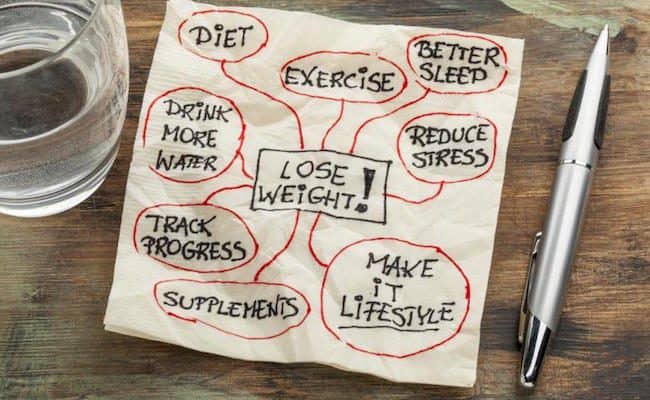
There are many different programs, diets and exercise plans to lose weight. What may be a harder, and maybe more important, step is keeping the weight off. Unfortunately, regaining weight after going through weight loss can be common. Trying to lose the extra weight again can seem even more challenging.
It turns out there may be a reason why it’s harder to lose weight after regaining. Going through weight loss can induce a change in hormones that can affect appetite and weight regulation.
Here is a closer look for some reasons why it may be harder to lose weight after regaining and how to keep the weight off.
Hormone regulation: leptin and ghrelin
There are many hormones and neurotransmitters involved with signaling hunger, fullness and appetite in the body. Researchers are still trying to understand the full relationship between hormones and weight balance, but a change in hormone levels can be one reason why it’s harder to lose weight after regaining.
Two hormones in particular, leptin and ghrelin, have been studied in their relationship to influencing the body’s signaling for eating. Leptin is a hormone made from fat cells; as fat cells increase, leptin production increases. The more leptin someone has, the stronger the signal to the brain to lower food intake over time.
Obese or overweight people may become leptin resistant, meaning the signal sent to the brain to lower food intake is not being listened to. Through weight loss as fat mass decreases, the level of leptin is decreased meaning there is not as strong a signal to inhibit food intake. This can make sustaining weight loss hard if there is less inhibition for food intake from leptin.
Ghrelin is often considered to have an opposite effect from leptin; ghrelin stimulates hunger and is more a short acting hormone. Ghrelin is released from cells that line the stomach and is high before meal initiation and low after eating a meal. Ghrelin is actually sometimes lower in obese people compared to normal weight people, and the sensitivity to ghrelin may be increased.
As weight loss goes on, ghrelin levels can increase. This may be one reason why regaining weight can be “easy” and keeping the weight off is harder. If ghrelin levels are increased, there will be a stronger signal sent to the brain to eat.
There are other hormones that may be involved with influencing hunger and appetite regulation after weight loss. All of these can have a synergistic effect for promoting weight gain after weight loss, but they don’t have to if you understand how to combat this.
Weight regulation theories
The influence of genetics and environment in terms of weight regulation is still being studied. What is pretty clear is if you have a genetic disposition to obesity, changing your environment can greatly increase your chances of being at a healthy or unhealthy weight.
Some theories suggest our bodies like to be at a certain weight range. If we get too much over or under our range, the body will fight hard to get back to where it wants to be. This is the simplistic rationale behind the set point theory. If you go through weight loss, but your body’s set point was at a higher weight, it will be hard to stay at the lower weight because your body prefers a different weight range.
Not all professionals agree with the set point theory, but this weight disposition may play a role with weight gain after losing weight, especially if someone is eating very healthy and exercising. Another theory, thrifty metabolism theory, suggests some people have a thrifty metabolism meaning their body is very efficient at using energy and is good at “holding on” to excess.
While this may be a good thing during a famine or starvation, it may promote weight gain when you have plenty of food available. This could also make it harder for weight loss especially after regaining weight.
Don’t let up
One of the best tools for avoiding regaining weight after weight loss is to not let up. Weight maintenance requires a high amount of exercise, maybe as much or more as you did during weight loss. Once you hit your goal weight, you still need to be mindful of what you put in your body. Don’t let up from eating a healthy, balanced diet.
If you do regain weight after weight loss, don’t get discouraged. You CAN still lose the weight, even if you feel like you have some genetic factors against you. Environment and habits are strong influences for weight regulation that you can control.
Conclusion
Regaining weight after weight loss can be discouraging mentally and it may seem harder to get rid of the excess weight again. There are some hormonal changes with hunger regulating hormones that may promote weight gain and make weight loss harder.
However, you can fight these disadvantages by following a healthy lifestyle by eating balanced meals, having a physically active lifestyle, control on over eating and healthy stress coping mechanisms, according to a 2005 review article from Obesity Reviews.
References used in this article










